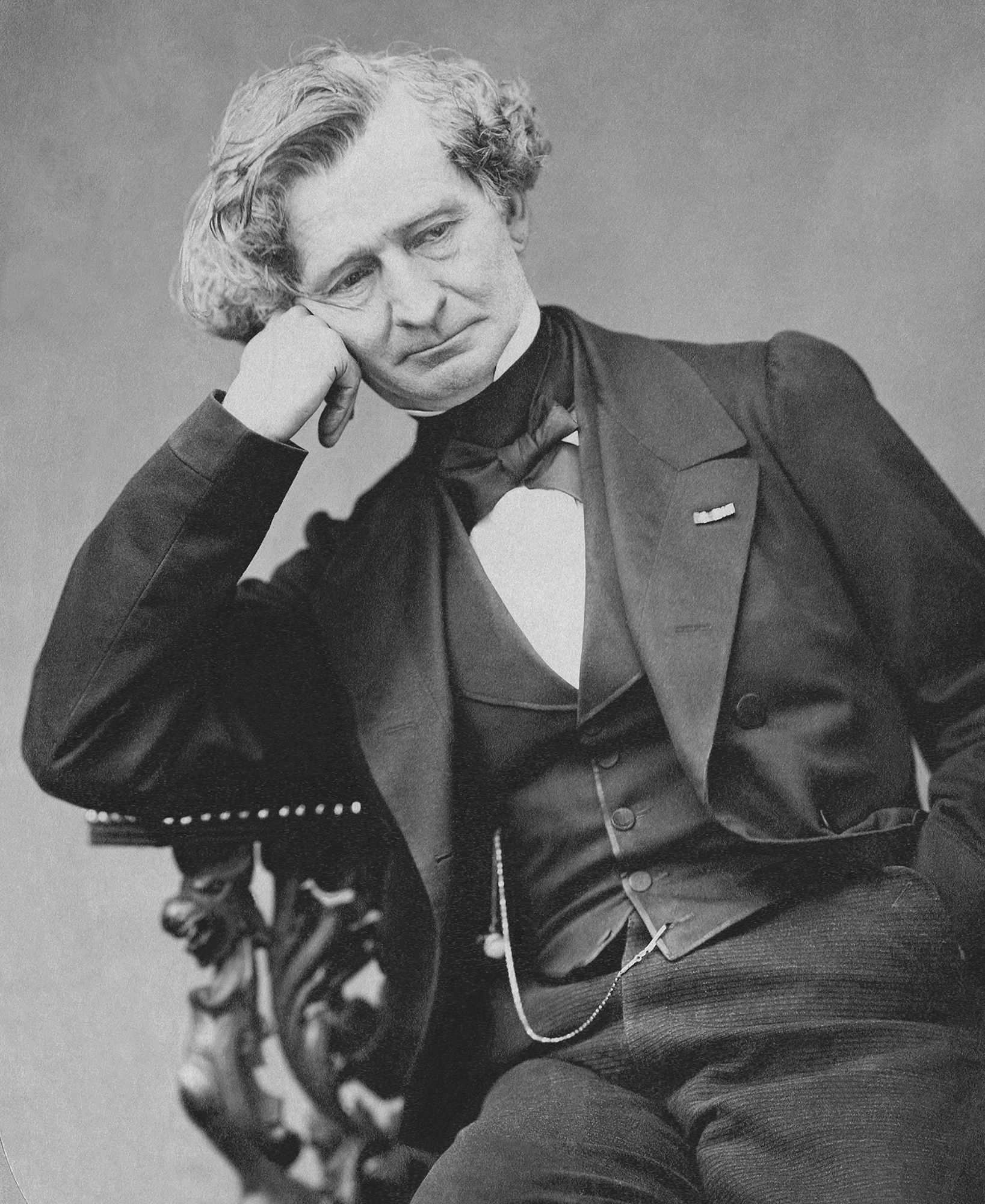Berlioz, Hector << BAIR lee ohz, ehk TAWR >> (1803-1869), was a French composer. He is known for his orchestrating genius; his long, uninterrupted melodies; and his way of relating his musical compositions to stories and ideas, known as program music. Berlioz drew from his own life experiences for many of these programs. His understanding of acoustics enabled Berlioz to become a great orchestrator.

Overture to Benvenuto Cellini, opera by Hector Berlioz
Berlioz chiefly composed symphonies, operas, and other large works. Virtually all of these works had a text or program. His symphonies include the Symphonie fantastique (1830); Harold in Italy (1834), with viola solo; and Romeo and Juliet (1839), with solo voices and chorus. He composed five operas, including Benvenuto Cellini (1838), Beatrice and Benedict (1862), and The Trojans (1863, 1890). His other works for soloists, chorus, and orchestra include the Requiem (1837), L’Enfance du Christ (1854), and The Damnation of Faust (1846).
Berlioz was admired as a conductor, critic, and writer. His books on music include Grand Treatise on Modern Instrumentation and Orchestration (1844), Evenings with the Orchestra (1852), and The Conductor: The Theory of His Art (1855). His Memoirs were published in 1870, after his death. Louis Hector Berlioz was born on Dec. 11, 1803, in La Cote Saint-Andre, near Grenoble, France. He died on March 8, 1869.
